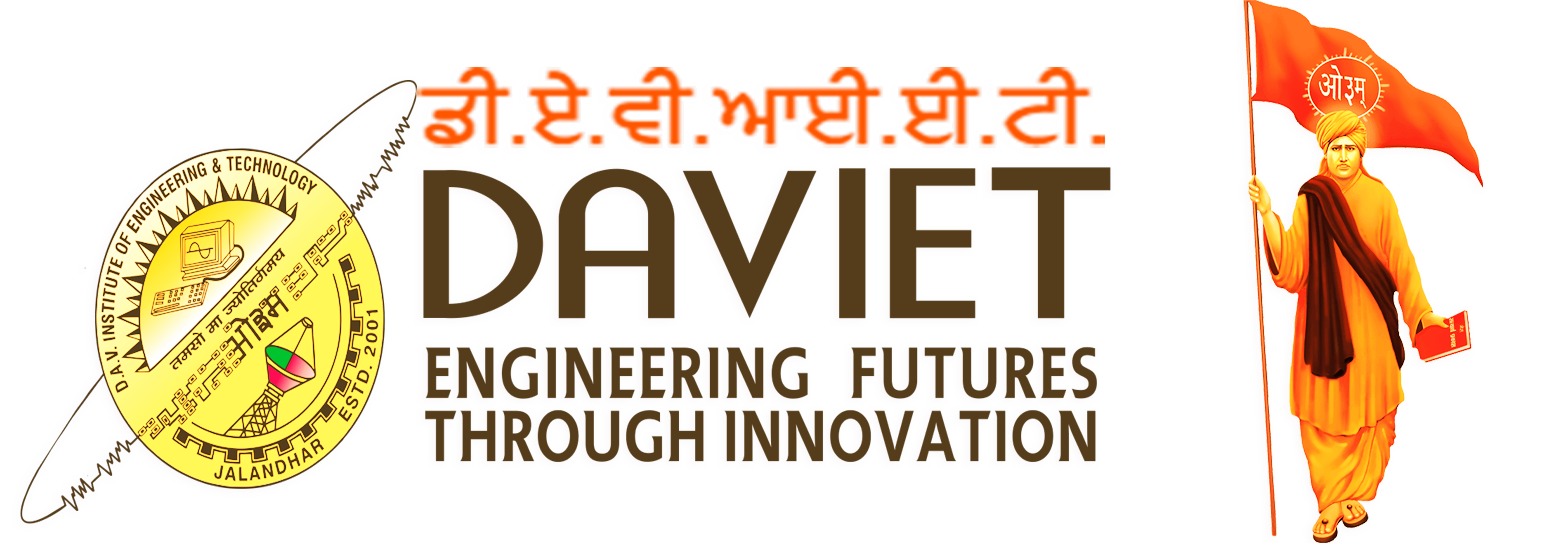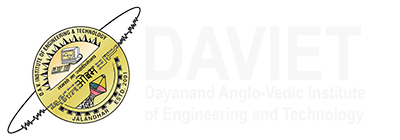To produce professionally competent engineers in the field of Computer Science accepted globally to serve as a valuable resource for industry and society.
M1To prepare students for professional career & higher studies by providing conducive environment and infrastructure for teaching, learning and research.
M2To produce skilled human resources and entrepreneurs in emerging areas of technologies by maximal interaction with industry.
M3All round development of students by inculcating professional ethics, leadership abilities with strong moral values.
PEO1 Graduates will be able to outperform in technical/managerial roles ranging from problem analyzing, solving, designing, development to production support in software industries as well as in R&D sectors.
PEO2 Graduates will be able to successfully pursue higher education/research in reputed institutions within country or abroad.
PEO3 Graduates will have the ability to adapt, contribute and innovate advance technologies and systems in the key domains of Computer Science & Engineering.
PEO4 Graduates will be ethically and socially responsible solution providers/entrepreneurs in Computer Science disciplines.
Students will be able to:
PSO1: Apply the knowledge of computer system and design principles in building the software and hardware components.
PSO2: Apply knowledge of layered network models, protocols, technologies and topologies as well as incorporating security policies for building network and internet based applications.
PSO3 :Apply the theoretical foundations of computer science in modelling and developing solutions to the complex and real world problems as well as designing and developing the application software systems along with the database design and management that meet the automation needs of industry and society.
After the completion of undergraduate course in Computer Science &Engineering , graduates will be able to:
PO1 Apply the knowledge of mathematics, science, engineering fundamentals, and an engineering specialization for the solution of complex engineering problems.
PO2 Identify, formulate, research literature, and analyse complex engineering problems reaching substantiated conclusions using first principles of mathematics, natural sciences, and engineering sciences.
PO3 Design solutions for complex engineering problems and design system components or processes that meet the specified needs with appropriate consideration for public health and safety, and cultural, societal, and environmental considerations.
PO4 Use research-based knowledge and research methods including design of experiments, analysis and interpretation of data, and synthesis of the information to provide valid conclusions.
PO5 Create, select, and apply appropriate techniques, resources, and modern engineering and IT tools, including prediction and modelling to complex engineering activities, with an understanding of the limitations.
PO6Apply reasoning informed by the contextual knowledge to assess societal, health, safety, legal, and cultural issues and the consequent responsibilities relevant to the professional engineering practice.
PO7Understand the impact of the professional engineering solutions in societal and environmental contexts, and demonstrate the knowledge of, and need for sustainable development.
PO8Apply ethical principles and commit to professional ethics and responsibilities and norms of the engineering practice.
PO9Function effectively as an individual, and as a member or leader in diverse teams, and in multidisciplinary settings.
PO10Communicate effectively on complex engineering activities with the engineering community and with the society at large, such as, being able to comprehend and write effective reports and design documentation, make effective presentations, and give and receive clear instructions.
PO11Demonstrate knowledge and understanding of the engineering and management principles and apply these to one’s own work, as a member and leader in a team, to manage projects and in multidisciplinary environments.
PO12Recognise the need for, and have the preparation and ability to engage in independent and life-long learning in the broadest context of technological change.”
Computer Science
- About Us
- Faculty Profile
- Outcome Based Education
- Lab Facilities
- Departmental Activities
- Action Based Learning
- Student Consortium & Club Activities
- Workshops and Expert Lectures
- Research Activities
- Research Publications
- Departmental Academic Calendar
- Placements & Higher Studies
- Our Distinguished Alumni
- Employer Survey Form
- Alumni Feedback Form
- Class Incharge and Class Representative
- Curriculum
- Time Table 2023


